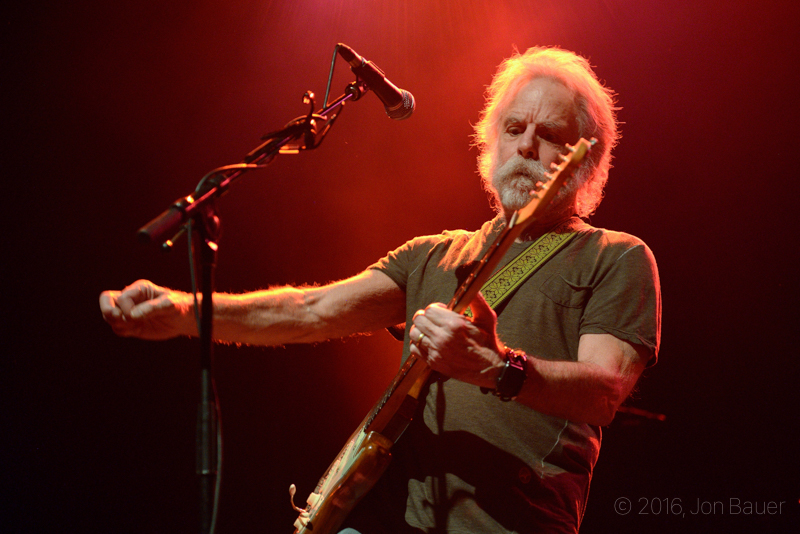Another Planet, Bob Weir, Congressman Mike Thompson tie venue relief with economic recovery

Bob Weir performs at Jackie Greene’s annual birthday bash at the Warfield in San Francisco on Nov. 26, 2016. Jon Bauer/STAFF.
The COVID-19 pandemic has taken its toll on industries across America and around the world, but perhaps none as much as live music.
“We were the first businesses to close and we’ll be the last to open,” said Allen Scott, executive vice president of Another Planet Entertainment, at a virtual press conference Tuesday. “We have basically zero dollars in revenue coming in. It is very grim.”
So dire is the situation that Congress has been moved to Act. Tuesday afternoon Scott, along with legendary Grateful Dead cofounder Bob Weir, Blue Note Records President Don Was, Blue Note Napa director Ken Tesler, Congressman Mike Thompson and others to support the Save Our Stages Act and the Restart Act. According to Thompson, the North Bay representative who coauthored both bills, they have significant support in Congress but nonetheless have struggled to advance through the legislative process.
Weir summarized the impetus behind the bill with an impassioned statement about the struggles of the music industry.
“I’ve done well. I have something of a cushion to fall back on,” he said. “But I’m speaking for the rest of the folks who are still trying to do well. The roadies, the venues, the agents, the songwriters, the ticket takers. It’s just endless, the number of people who are involved in this industry.”
The Save Our Stages Act authorizes the Small Business Administration to make music venues, promoters, producers and talent representatives eligible for grants to cover things like payroll, rent and utilities during the COVID-19 shutdown. Those grants can be up to $18 million per qualifying organization, with $12 million for costs incurred between March 1 and the end of 2020 and another 50 percent of the initial grant for costs in 2021 should the shutdown continue.
The RESTART Act is similar to June’s Paycheck Protection Program in that it makes loans available to small businesses, including in the music industry, to cover payroll and other costs.
“These bills would give small venues the capital and the flexibility needed as we move toward recovery,” Thompson said.
Tesler explained his situation and why the money is necessary.
“Blue Note Napa and JaM Cellars Ballroom have been shuttered by government order since March 12,” he said. “Oxbow River Stage was slated to begin in June and that never happened. The COVID pandemic has currently ended live music and live performance in California. Despite the fact restaurants have been allowed to open under restricted circumstances, unfortunately live music is all but completely forbidden.”
Weir highlighted the importance of live music and entertainment to an economic recovery with a lesson from history. He described the Chitlin Circuit, a collection of venues for jazz and blues venues through out the eastern United States, and its impact on local economies during the Great Depression.
“In the ’30s those parts of those towns … had an economic ecosystem that was thriving, and it continued to thrive,” he said. “All the hotels, restaurants, and shops were busy. The people were driving Cadillacs and wearing Italian suits in the height of the Depression. And the reason for this was the entertainment industry; sports and music drove this economic engine. They ducked out the Depression. They never felt it. And the reason I bring that up: we have a situation, that with the right kind of stimulus from the government, we can generate the same kind of economic rebound that the country really needs.”
Follow editor Daniel J. Willis at Twitter.com/BayAreaData.
